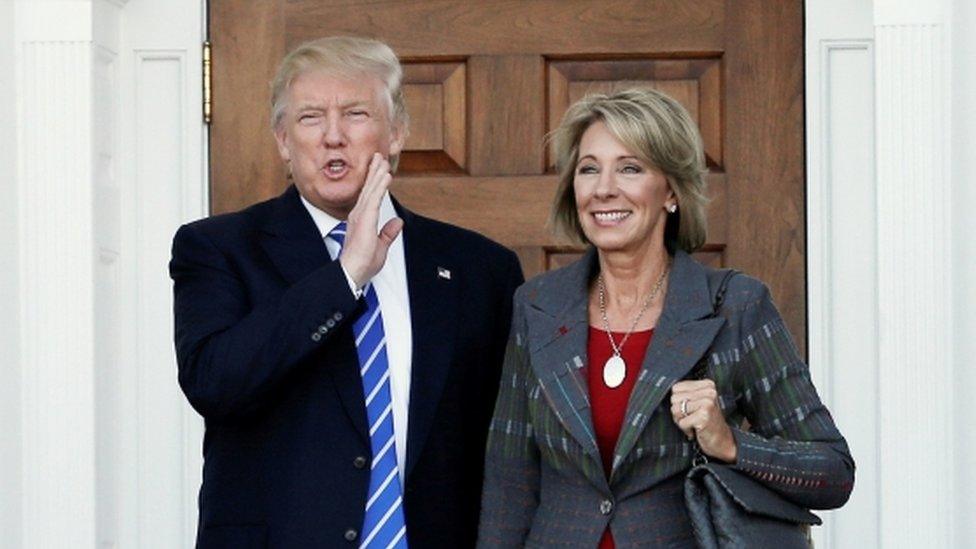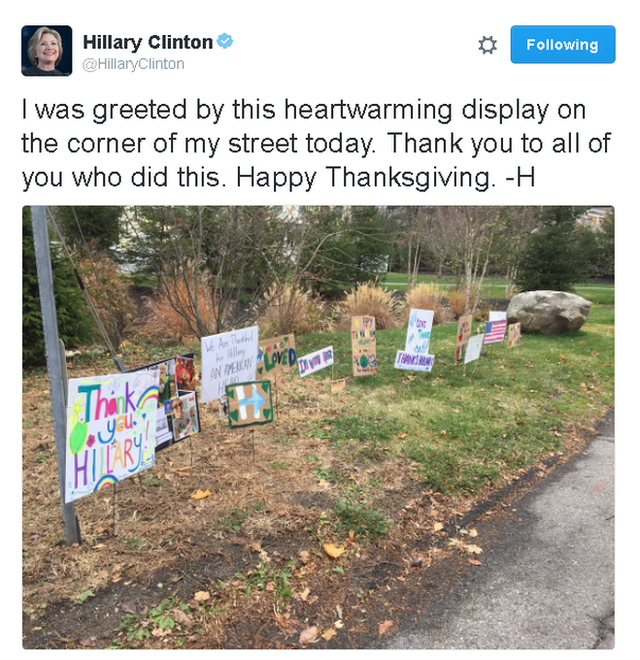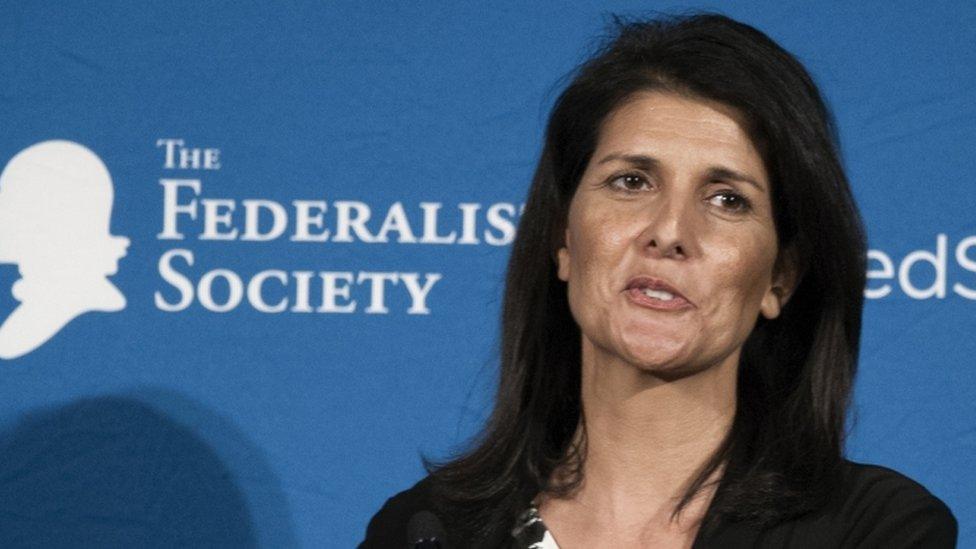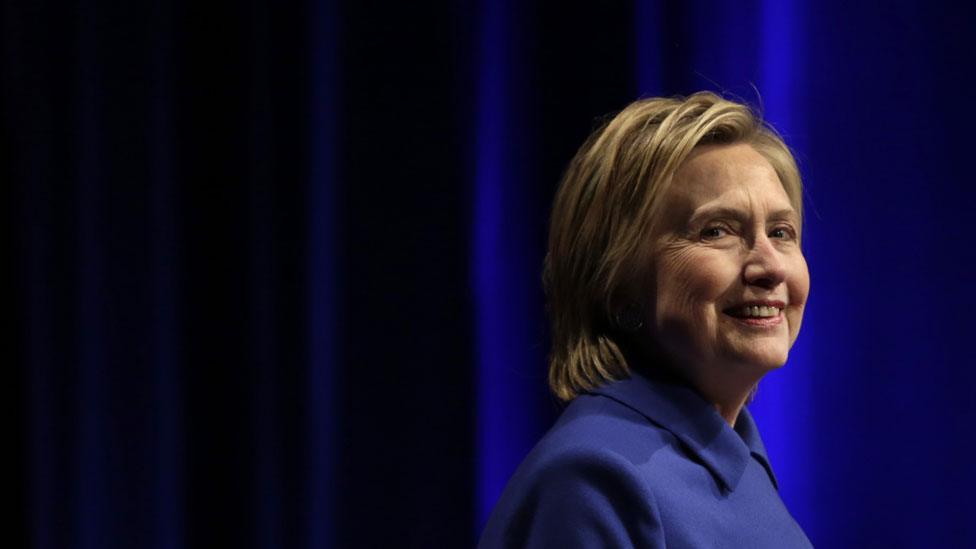Donald Trump calls for unity in Thanksgiving holiday address
- Published
- comments

Betsy DeVos was one of two cabinet choices named by Donald Trump on Wednesday
US President-elect Donald Trump has called for national unity in an address to mark the Thanksgiving holiday.
In the wake of what he called a "long and bruising" election campaign he said emotions in the country were raw.
The time had come, he said, "to begin to heal our divisions" but added that "tensions just don't heal overnight".
His losing rival Hillary Clinton tweeted a picture of signs with supportive messages for her, which she said she found near her home.
The messages included "We are thankful for Hillary - an American hero" and "You are loved". Mrs Clinton described them as "heartwarming".

Earlier Mr Trump announced the appointment of two women to his cabinet, both of whom had been fiercely critical of him during the presidential campaign.
In his Thanksgiving address, Mr Trump acknowledged the bitterness still remaining after the bruising election campaign: "It doesn't go quickly, unfortunately, but we have before us the chance now to make history together to bring real change to Washington, real safety to our cities, and real prosperity to our communities, including our inner cities."

Nikki Haley: "A proven dealmaker," said Mr Trump
On Wednesday, Mr Trump announced that South Carolina Governor Nikki Haley was his pick for US ambassador to the United Nations, while Betsy DeVos has been chosen to be secretary of education.
Both are former critics of Mr Trump, with Mrs Haley once saying she was "not a fan", and Mrs DeVos branding the Manhattan tycoon an "interloper".
The appointments will need to be approved by the Republican-controlled Senate.
Mr Trump called Mrs Haley "a proven dealmaker, and we look to be making plenty of deals".
"She will be a great leader representing us on the world stage," he added.
Mrs Haley said she was "moved" to accept the assignment and would stay on as South Carolina governor, pending her congressional confirmation.
During the Republican primaries, she supported Florida Senator Marco Rubio and then Texas Senator Ted Cruz.
Mrs Haley also strongly attacked Mr Trump's proposal to ban Muslim immigrants, describing it as "un-American".

Meanwhile, Hillary Clinton's lead over Mr Trump in the popular count of the US presidential election has increased to two million votes.
He won the election by winning a majority of the electoral college votes, but with ballots still being counted two weeks after election day, the Cook Political Report has Mr Trump's tally at 62.2m and Mrs Clinton's at 64.2m.
It is the fifth time the winner of the popular vote has lost the election.
In 2000, Democrat Al Gore's final lead over George W Bush, who won the election after a prolonged legal challenge, was nearly 544,000.
The Supreme Court ultimately decided that election by awarding Mr Bush a win in the contested state of Florida.
This year, Mrs Clinton scored large tallies in states like California but Mr Trump won most of the so-called swing states, which ultimately decide the outcome of elections.
The electoral college system favours candidates who win by a small margin in lots of states over ones that win by a landslide in just a few.
How did Hillary Clinton get more votes and lose?
Why some states matter more than others
A group of academics, lawyers and data experts is also trying to persuade the Clinton team to join their effort to investigate the results in three states to check there was no foreign computer hacking that manipulated the outcome.
They are curious why Ms Clinton performed worse in counties that relied on electronic voting machines compared to paper ballots and optical scanners.
But her campaign has not indicated any interest in joining a fight for a recount.
The Green party candidate, Jill Stein, is raising funds to request a recount in the same states - Michigan, Wisconsin and Pennsylvania, all won by Mr Trump.
